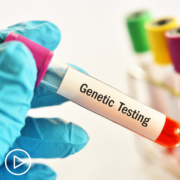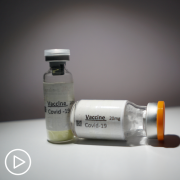May 2022 Digital Health Round Up
This month brings great strides in the advancement of technology available to physicians treating cancer patients. Scientists are using artificial intelligence to help physicians predict cancer reoccurrence for patients, helping patients have better outcomes. New imaging technology, using fluorescent probes, aids in tracking the patient’s cancer drug progress. Researchers have also developed a procedure using photodynamic therapy to help in the fight on colorectal cancer.
AI Tool Accurately Predicts Tumor Regrowth in Cancer Patients
Doctors and scientists have developed an artificial intelligence tool that can accurately predict how likely tumors are to grow back in cancer patients after they have undergone treatment reports, TheGuardian.com. Using this AI for the patients that are at highest risk of having the cancer reoccur helps with getting detection sooner and increases the patients’ chance of a better outcome. Cancer patients carry the burden of worrying about reoccurrence daily, and this AI can help decrease some of that anxiety. Accurate prediction of recurrence can decrease the amount of CT scans for patients, decreasing the amount of radiation that the patients are exposed to. This study tested the AI on lung cancer, but this artificial intelligence tool can be used for many other cancers throughout the body. Find more information here.
Fluorescent Probe Can Track Cancer Drug Progress, Study Shows
Researchers say the fluorescent probe can track how tumors are responding to the drugs, which harness the body’s immune system to fight disease. The light-sensitive technology is able to detect which key immune cells-a small group known as T cells- are involved in attacking tumors reports, MedicalXpress.com . This new imaging technology can show doctors how the patient’s body is responding to the treatment right away. The doctors can see the response through tissue or blood samples and make changes to treatment based on the findings. This imaging allows for a more personal approach to each cancer patient, improving patient outcomes. Find more information here.
Wireless Device to Provide New Options for Colorectal Cancer Treatment
Photodynamic therapy is a new tool available in the fight on colorectal cancer, the third most common cancer. The researchers will use photodynamic therapy (PDT) during surgery by using a photosensitizer- a drug activated by light- to kill the cancer cells. During this process, surgeons will be able to remove the bulk of the tumor, then fully irradiate the tumor bed when the photosensitizer is activated by the light reports, MedicalXpress.com . The primary treatment for colorectal cancer is surgery and chemotherapy, this allows for another option for treatment of this cancer. Using the photodynamic therapy helps the surgeon get out all the cancerous cells, helping to prevent reoccurrence of the cancer. This method of treatment also helps decrease the toxic side effects that chemotherapy has on the body. Photodynamic therapy can be used for treatment of other cancerous tumors throughout the body. Find more information here.
Dana Kaiser is a professional writer and a strong patient advocate, learning from experience during her 22-year career as a nurse.










